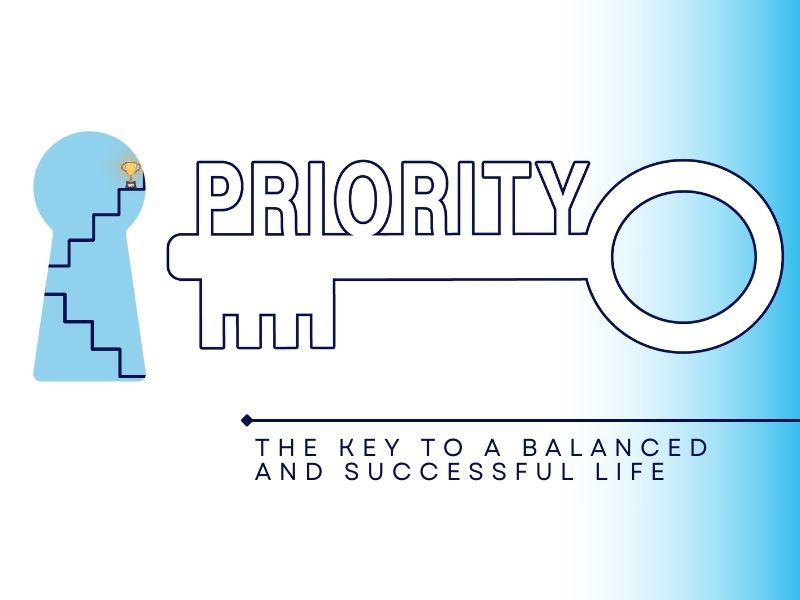Do you often feel overwhelmed by an ever-growing to-do list? Does one task take so long that everything else gets delayed? Do you find yourself so busy that there’s no time left for yourself? If your answer to any of these questions is ‘Yes,’ then it’s time to talk about priority.
Understanding Priority
Priority is about recognizing what is truly important in life and acting accordingly. We all know that prioritization is crucial, but setting priorities effectively is often a challenge. Sometimes we focus too much on our hobbies or distractions, sidelining our actual goals. Other times, we neglect the people closest to us in our pursuit of success. Striking the right balance is key.
The Eisenhower Matrix: A Simple Tool to Prioritize
One of the best ways to set priorities is using the Eisenhower Matrix, which categorizes tasks into four sections:
1. Important & Urgent (DO)
These are tasks that require immediate attention and should be completed as soon as possible.
- Examples: Meeting deadlines, preparing for an exam, handling a health emergency.
2. Important & Not Urgent (SCHEDULE)
These tasks are crucial but don’t require immediate action. Plan and allocate time for them.
- Examples: Personal development, setting long-term goals, regular exercise, skill enhancement.
3. Not Important & Urgent (DELEGATE)
Tasks that need to be done quickly but don’t necessarily require your involvement. Delegate them when possible.
- Examples: Routine paperwork, making reservations, minor household repairs.
4. Not Important & Not Urgent (DELETE)
These tasks don’t contribute much value and can often be eliminated or minimized.
- Examples: Excessive social media scrolling, watching random TV shows, playing video games for hours.
When handling any task, ask yourself, “Which box in the Eisenhower Matrix does this belong to?”
How to Align Priorities with Your Goals
Before setting priorities, reflect on what you truly want:
- What is my ultimate goal?
- How much time am I willing to invest in achieving it?
- Am I okay with slow progress, or do I want to succeed as soon as possible?
- How do I handle distractions and external circumstances?
If obstacles arise, find alternative solutions instead of getting stuck. Just as you would take a different route if a road is blocked, you must find ways to adjust and move forward in life without losing focus on priorities.
Overcoming Laziness & Distractions
Laziness and distractions can easily derail priorities. If you struggle with this, start small:
- Aim for at least 10% sincerity in following your priorities.
- Gradually increase your efforts until you develop a disciplined routine.
- Set specific break times for relaxation, rather than letting distractions take over your work hours.
- Engage in activities that provide constructive relaxation, like reading or a hobby that aligns with your growth.
Balancing Work, Family, and Personal Growth
- If you are a student, prioritize studies but also take care of family responsibilities in your free time.
- If you have a job, dedicate 8–10 hours to work but ensure you also allocate time for household chores and personal growth.
- If you are involved in social or spiritual service, do so in your spare time after fulfilling primary responsibilities.
We make efforts to fulfill professional obligations, but we must not neglect the people who have supported us throughout our lives, such as our parents and family. Striking a balance between work, relationships, and self-improvement is crucial.
Final Thoughts
Prioritizing tasks effectively leads to reduced stress, better time management, and a more fulfilling life. Begin by recognizing what matters most to you and take intentional steps towards achieving it. Remember, your time is valuable—use it wisely!


No responses yet